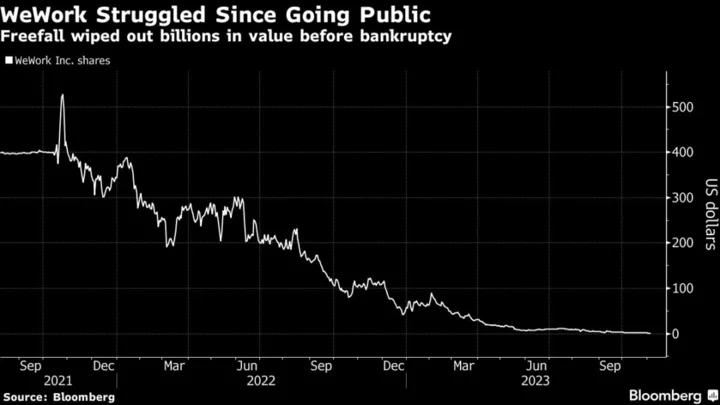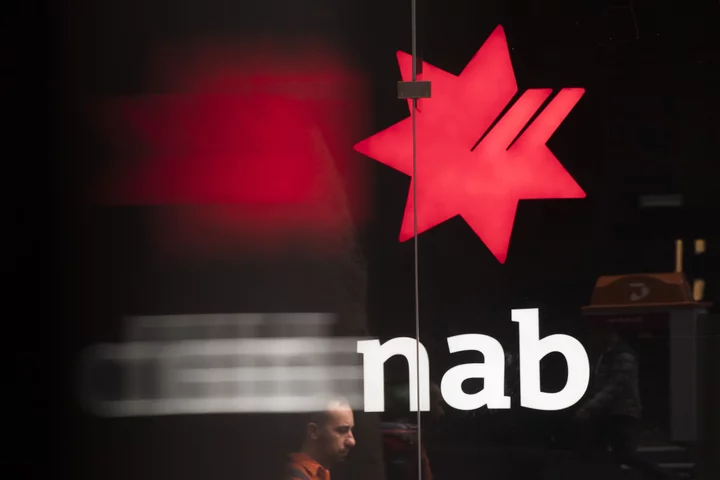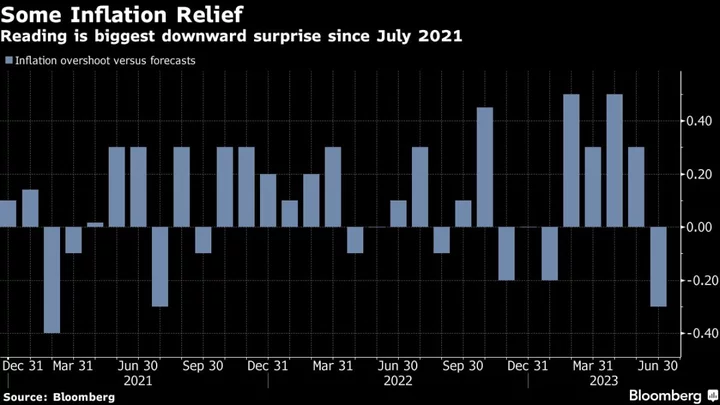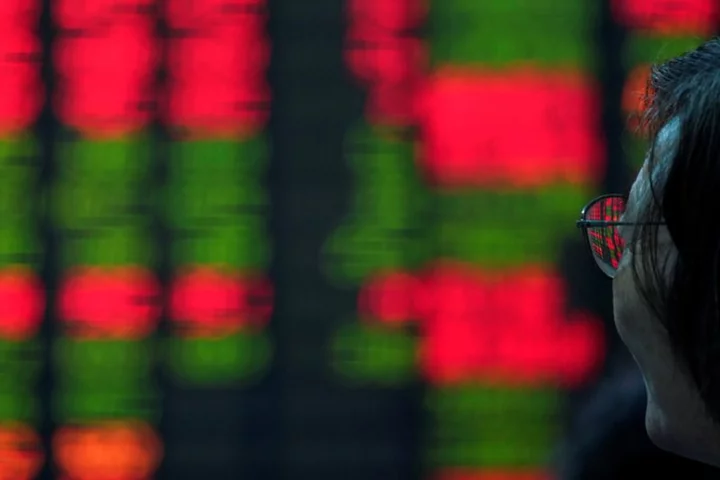The list of companies to go public through a blank-check merger only to go bankrupt shortly thereafter has a new headline member: WeWork Inc.
After a little more than two years as a public company, the infamous office-sharing firm has filed for Chapter 11 protection. WeWork joins the likes of Core Scientific Inc., one of the largest miners of Bitcoin, and Richard Branson’s Virgin Orbit Holdings Inc. to go bust and wipe out billions in market value.
WeWork is the highest profile SPAC blowup. The company’s $9 billion valuation in an October 2021 deal — one of the biggest mergers by enterprise value at the time — exemplified the profligacy of a near-zero interest rate environment.
“There was a major change in 2021, where quite a few venture capital-backed firms merged with a SPAC and the track record has not been good,” says Jay Ritter, finance professor at the University of Florida. “Critics of SPACs for many years have said a lot of the companies that were merging with SPACs were low-quality companies and the evidence seems to be somewhat consistent with that.”
There are at least 23 bankrupt companies born out of SPACs, or special-purpose acquisition companies, and more than a dozen additional firms that were acquired far below their debut values. On top of that, there are roughly 110 post-SPAC firms that are trading for less than $1. All are reminders of the collapse of the pandemic-fueled frenzy surrounding the strategy.
SPACs are also called blank checks because they raise cash via initial public offerings with plans to merge with an unidentified target company. They give themselves a window to buy something or return the cash to investors, and holders can redeem their investment if they don’t like the deal.
The pandemic and low rate environment turned blank-check mergers into a popular financing vehicle, attracting celebrity backers like former New York Yankees infielder Alex Rodriguez and NFL quarterback-turned-activist Colin Kaepernick, all willing to line up blank checks.
“You had a bunch of SPAC sponsors looking to take companies public that weren’t able to go public the ordinary way for all the right reasons: they didn’t have scale, weren’t profitable and just weren’t ready for prime time,” said Greg Martin, co-founder of Rainmaker Securities. “But the SPAC guys came with offers of insane valuations, it was almost like a bribery.”
Another Black Eye
WeWork’s SPAC tie-up with BowX Acquisition Corp. brought in a whopping $1.3 billion with investors like Insight Partners, funds managed by Starwood Capital Group, and Fidelity Management. They were among those buying in at $10 through a private investment in public equity, or PIPE.
But the cash infusion wasn’t enough as shares of the company plummeted with a 1-for-40 reverse stock split, extending the company’s life by a few months.
Its bankruptcy ends a saga that torched billions of Softbank Group Inc.’s cash. The filing came nearly 18 hours after trading was halted as speculation of its demise swirled and co-founder Adam Neumann put out a statement that said WeWork could rise again.
Read more: WeWork’s Multibillion Rescue Couldn’t Save It From Office Bust
WeWork is among the 139 de-SPACs — companies that successfully merged with a blank check company — to question their own viability this year, according to Bedrock AI, an investment research company that scours regulatory documents. The firm, which analyzed reports from 392 de-SPACs, says the percentage of companies that merged with blank check firms raising concerns over the past four years is nearly double of those that went public the more traditional route.
As WeWork becomes another black eye for the SPAC industry, most sponsors have closed shop and even serial backers have shifted to look for the next big stock market fad.









